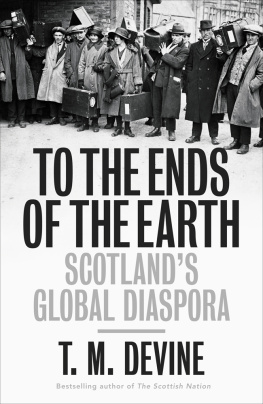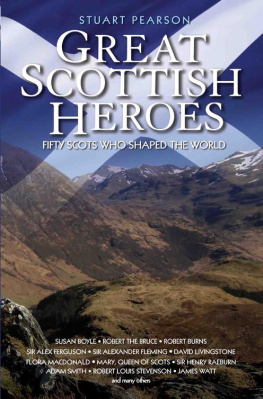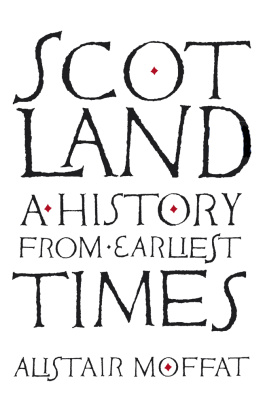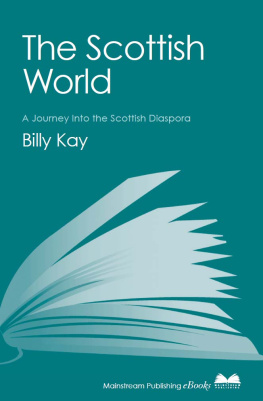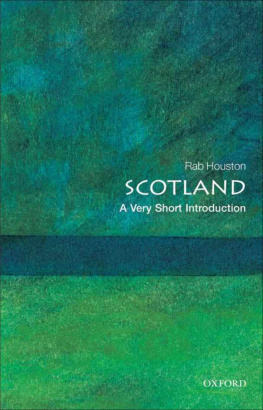
T. M. DEVINE
To the Ends of the Earth
Scotlands Global Diaspora
17502010

ALLEN LANE
an imprint of
PENGUIN BOOKS
ALLEN LANE
Published by the Penguin Group
Penguin Books Ltd, 80 Strand, London WC2R 0RL , England
Penguin Group (USA) Inc., 375 Hudson Street, New York, New York 10014, USA
Penguin Group (Canada), 90 Eglinton Avenue East, Suite 700, Toronto, Ontario, Canada M4P 2Y3
(a division of Pearson Penguin Canada Inc.)
Penguin Ireland, 25 St Stephens Green, Dublin 2, Ireland (a division of Penguin Books Ltd)
Penguin Group (Australia), 250 Camberwell Road, Camberwell, Victoria 3124, Australia (a division of Pearson Australia Group Pty Ltd)
Penguin Books India Pvt Ltd, 11 Community Centre, Panchsheel Park, New Delhi 110 017, India
Penguin Group (NZ), 67 Apollo Drive, Rosedale, Auckland 0632, New Zealand
(a division of Pearson New Zealand Ltd)
Penguin Books (South Africa) (Pty) Ltd, 24 Sturdee Avenue, Rosebank 2196, South Africa
Penguin Books Ltd, Registered Offices: 80 Strand, London WC2R 0RL , England
www.penguin.com
First published 2011
Copyright T. M. Devine, 2011
The moral right of the author has been asserted
All rights reserved
Without limiting the rights under copyright reserved above, no part of this publication may be reproduced, stored in or introduced into a retrieval system, or transmitted, in any form or by any means (electronic, mechanical, photocopying, recording or otherwise) without the prior written permission of both the copyright owner and the above publisher of this book
ISBN: 978-0-24-196064-6
For
Cara, Erin, Rebecca and Thomas
Preface
In 1999 I published The Scottish Nation 17002000, an attempt to survey and understand the domestic history of Scotland over the last three centuries and more. Then Scotlands Empire 16001815 appeared in 2003 and it described, explained and considered the effect, both on Scotland and abroad, of the nations central role in the development of the British Empire to the early nineteenth century. This volume continues that narrative down to the present day. Its focus, however, over the last 250 years is global as well as imperial, incorporating the post-1783 USA and other non-British territories in the overall account. My contention here is that Scots were never limited to the formal empire as migrants and adventurers. They were a global people whose diasporic roots were established in medieval and early modern Europe and then spread across the world. On the face of it, therefore, this may now appear as the third volume of a trilogy, as my attempt to understand in its totality, through analysis of both home and overseas experience, the modern history of one country. If so, it was never planned thus, but evolved almost by accident.
The present study impinges significantly on areas and periods which I have considered before: the domestic history of Scotland from the eighteenth to the twentieth centuries and the nations role in the imperial project in its earlier phase, c.1750 to 1815. Many studies of the Scots abroad examine the reasons for emigration from the homeland or the impact of them on the new lands. I have tried to combine both approaches in order to project a sense of interaction and the dynamic relationship between homeland and host-land. Scottish ideas and institutions have traditionally been regarded as important in the fashioning of new countries overseas, especially in the Empire. Much less attention has been given to how expanding settlements overseas were crucial to Scotlands own national history.
Purists may cavil at the word diaspora in the subtitle. For some social scientists and historians the term must always relate to the experience of the Jewish people, a process involving the coercion, uprooting and forced removal of an ethnic group outside the boundaries of its established homeland. In that narrow definition there is danger in its use by an historian of Scottish emigration. To some, it may legitimize the popular myth that Scotlands great modern exodus was in large part due to the dispossession associated with the Highland Clearances. This is by no means my intention. It seems to me, however, that one rendering of diaspora in the literature does suit the purposes of the narrative of this volume well. I seek here a return to the original etymological origins of the word, from the Greek to sow or to scatter, a process of human dispersal which can be voluntary and opportunistic rather than necessarily governed by implacable expulsive forces. The primary objective, of course, is to examine the diaspora of people. But a secondary purpose is to consider the global scattering and impact of Scottish religious and secular ideas, borne to several overseas countries by the emigrants and leaving a deep mark there, as well as commodities and funding exported from Scotland itself. Scottish overseas investment and capital goods production were often basic to the economic transformation of the new lands in the Victorian era and without which mass migration and settlement there would have been much diminished. These factors are therefore seen as an integral part of the history of diaspora as a whole. Viewed from this perspective, the Scots, in the same way as the Jews, the Irish, Chinese, Palestinians and others, can be rightly considered a diasporic people.
A striking feature is the remarkable longevity of the Scottish emigrations. From the thirteenth century to the present, Scots have been leaving their homeland in significant numbers. Throughout the last seven centuries movement to England has been a constant feature (and, though not considered here, I intend to return to the subject of Scottish migration to England in a future book), and until the few decades before 1700, Scandinavia, the Low Countries and Central Europe attracted large numbers. Even before the Union of 1707, however, the axis was shifting further afield, across the Atlantic and to India, Asia, South Africa, Australia and New Zealand. By Victorias reign Scots traders, missionaries, doctors, educators and engineers could also be found in China, Japan, Argentina and other Latin American states: truly a global people.
There is also the linked issue of scale and volume. When European emigration can be measured comparatively from the nineteenth century, Scotland had a higher rate of outward movement on a per capita basis of its population than virtually any other country of the time. Because of this, the history of the Scottish diaspora might not simply be of interest to Scots at home and abroad, but to all those seeking to understand international mobility, one of the great issues of this new century. Key aspects of human experience run through this book: transition, assimilation, identity, the relationship between host country and home country, nostalgia, emigrant cultures, adjustments to the new lands, the impact of Europeans on the lives of native peoples, the invention of traditions and mythologies and much else. The book can therefore be read from one perspective as a detailed case-study of how a single ethnicity, deeply involved in the historic process of the spread of European peoples across the globe, experienced one of the fundamental transformations in modern history.
Nonetheless, I am more than conscious of the weaknesses and gaps in the current text. The subject of Scottish diaspora studies is still in its intellectual infancy despite the immense contributions which some researchers have made over the last few years. There are so many questions to which the answers, rigorously based on representative evidence, are still impossible and will remain so until more systematic archival and comparative research is completed. As a result, this study is an interim statement, a tentative road map into often mysterious territory, much of which remains obscure, but at the same time potentially fascinating to researchers of the future.
Next page
